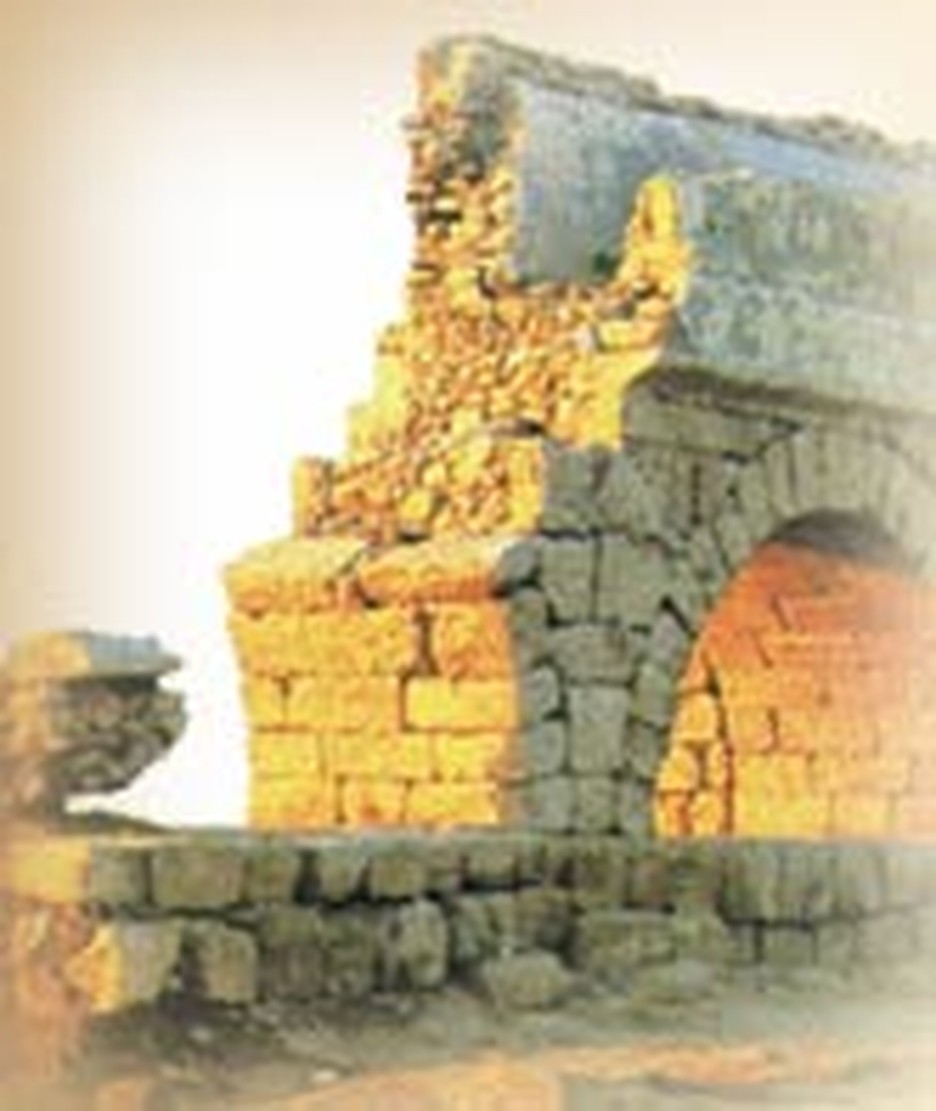
Who was the first church historian? Most Christians would immediately say the Gospel writer Luke. He also gave us the book of Acts, an account of the early church during the time of Peter and Paul. But after that there was no major effort to record the history of the church, at least not one that anyone is aware of, until around the year 325. Then Eusebius, the bishop of Caesarea in Israel, saw the importance of preserving the story of the early Christian church for us who would become believers in later generations. Think of the incredible task he set out to accomplish! Eusebius is going to cover over 300 years of church history. To get an idea of the challenge, picture this.
Try This One in Your Mind
Suppose you are part of a people whose origins go back to around the 1690’s, almost a century before America was an independent nation. You are selected to tell in detail the story of your people. But there are problems. Your people were a despised and illegal group for most of that time. In fact, there were at least two full-scale government sponsored persecutions intended to exterminate your people. Many key leaders were captured and killed and their precious books burned. They had no official standing, no public festivals, no monuments built to commemorate your community. (The records for an oppressed minority are not usually easy to come by.) And to make your task more challenging, your people spread over most of the known world, living and growing within diverse cultures. Now then, how do you possibly put together the story? That is the kind of task Eusebius took on. Finally, peace had come to the church after Constantine became emperor. Now the story could be told. Eusebius was the one for the job. He had already prepared a chronology of the Bible and early church, trying to establish the dates of Christ's death and church events which followed. This was a difficult undertaking because many different calendars were in use at the time and he had to correlate events recorded under one system to events recorded under others.
He Preserved the Sources
Eusebius' history then is our most significant authority for three hundred years of early Christian history. We owe him a special debt because he quotes from many sources that no longer exist. We are blessed that he showed interest in a broad range of material. He traced the lines of apostolic succession in key cities. Thus we know how the church progressed in major cities. The church has always been nourished with the blood of martyrs. Eusebius incorporated stories of martyrdom into his account and these precious testimonies remain a powerful apologetic for the church as well as an inspiration for later generations.
The Controversies
Eusebius was interested in the controversy over which books should be in the Bible and he related various views of the matter. Because of this we know a good deal about how we got the canon of the New Testament. Eusebius was also interested in the woeful fate of the Jews, which he attributed to their rejection of Christ. He recounted their struggles in several passages. Eusebius also traces the threads of heresy. Through him we are aware of challenges to orthodoxy in the early centuries of the faith. Eusebius also shows how God preserved the church and poured his grace upon it.
No Thanks
Late in life, Eusebius was invited to become bishop of Antioch. He turned down the offer. Appeal was made to the Emperor to compel him to accept. Instead, Constantine commended Eusebius for his refusal. In addition to all his other writings, Eusebius composed two Bible commentaries, one on Isaiah and one on the Psalms, a book on the geography of the Bible, and a concordance of the Gospels. He wrote two books to clear up differences in the Gospels. Finally Eusebius produced an account of the Martyrs of Palestine whom he had known. But his history remains his most important contribution to the church, and the one by which his name will always be remembered, for it gave us our past.
Fascinating Facts about Eusebius…
- Born about AD 260, probably in Caesarea
- 314 - Becomes bishop of Caesarea
- Became embroiled in Arian controversy. Wrote a letter asking for restoration of Arius.
- The Emperor Constantine appreciated Eusebius and relied heavily on his advice.
- It was to Eusebius that Constantine told his story of seeing the flaming cross with the words on it, "In this sign conquer."
- One reason Eusebius considered Christianity superior to paganism was that it purified other religions by putting an end to human sacrifice.
- Eusebius personally witnessed many of the martyrdoms he describes, once as a visitor to Tyre.
- Eusebius, like many contemporaries, accepted all of the books of our present New Testament except The Apocalypse (Revelation). The present canon had not yet been firmly established. In his day every book had been accepted except Hebrews, James, 2 John, 3 John, 2 Peter, and Jude.
- Eusebius was not above flattering the Emperor or dedicating books to him. In return the Emperor often called on him to preach special sermons.
In His Own Words
[At the beginning of his Church History, Eusebius states his purpose: to give us an account of what happened from the time of Jesus until his own day around 325. He will go back to Jesus, treat important events, leaders, opponents, the Jewish people, and how the church faced persecution. He then confesses the enormous size of the project.]
But at the outset I must crave for my work the indulgence of the wise, for I confess that it is beyond my power to produce a perfect and complete history, and since I am the first to enter upon the subject, I am attempting to traverse as it were a lonely and untrodden path. I pray that I may have God as my guide and the power of the Lord as my aid, since I am unable to find even the bare footsteps of those who have traveled the way before me, except in brief fragments, in which some in one way, others in another, have transmitted to us particular accounts of the times in which they lived. From afar they raise their voices like torches, and they cry out, as from some lofty and conspicuous watchtower, admonishing us where to walk and how to direct the course of our work steadily and safely. Having gathered, therefore, from the matters mentioned here and there by them whatever we consider important for the present work, and having plucked like flowers from a meadow the appropriate passages from ancient writers, we shall endeavor to embody the whole in an historical narrative, content if we preserve the memory of the successions of the apostles of our Savior; if not indeed of all, yet of the most renowned of them in those churches which are the most noted, and which even to the present time are held in honor. This work seems to me of especial importance because I know of no ecclesiastical writer who has devoted himself to this subject; and I hope that it will appear most useful to those who are fond of historical research.
Pamphilus: His Teacher and Friend
No one works utterly in a vacuum. So it was with Eusebius. He was about 25 years old when he began to study with Pamphilus (c. 240-309). A wealthy man, Pamphilus lived a frugal life, devoting his substance to learning. Building on the nucleus of books possessed by Origen, he created a school with a substantial library, and Eusebius was probably its first master. He also collected and copied all of Origen's writings with the result that many have survived to our own day. The library endured for many years and claimed to possess an original manuscript of Matthew's gospel. Eusebius helped build the collection and assisted others in using its treasures.
Eventually Pamphilus was arrested for his faith. During the teacher's two years of imprisonment, Eusebius visited him constantly and collaborated with him to write a defense of Origin. On February 16, 309, Pamphilus was executed along with a number of other Christians. Faithful to his teacher's memory, Eusebius wrote a three volume biography of him which included a catalog of the library the two had worked so hard to create.








